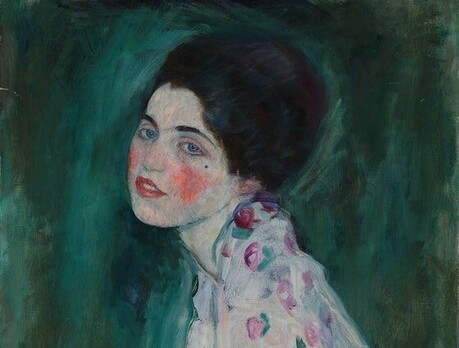A remarkable collection of photographs and personal items once belonging to Vivian Maier, the enigmatic Chicago nanny who posthumously became one of the world's most celebrated street photographers, is currently up for auction online. The collection includes 33 lots of photo prints and 17 lots of personal belongings such as handmade dresses, iconic hats, costume jewelry, and carefully preserved newspaper clippings that Maier organized in binders throughout her life.
Bidding for all items starts at $100 per lot, with the auction scheduled to close on October 7. All proceeds from the sale will be donated to charity, specifically the Soi Dog Foundation, a Thailand-based animal welfare organization dedicated to improving the lives of stray dogs and cats across Asia.
The items are owned by John Maloof, now 44 and living in Skokie, who inadvertently discovered Maier's extraordinary work in 2007 when he was just a Portage Park resident working on a small neighborhood history book. Maloof purchased a box of photographs at a local auction house for $400, hoping to find images that would help illustrate his co-authored book about Portage Park. While the printed pictures contained little relevant material for his project, the thousands of negatives he would later digitize revealed something far more significant – the discovery of a world-class artist whose story would captivate audiences globally.
Maloof wasn't the only person to acquire Maier's work during that period. Chicago collectors Ron Slattery and Randy Prow also obtained some of Maier's prints and negatives around the same time. Slattery was actually the first to put some of Maier's photographs online in 2008, though they initially went unnoticed by the public. However, in October 2009, when Maloof shared some of Maier's photos on his blog and linked them to the image-sharing platform Flickr, the response was immediate and overwhelming – the images went viral.
Tragically, Maier died in April 2009, just months before her work gained widespread international recognition. Her photographs alone would have made for a compelling discovery, but the fact that she was a reclusive nanny who worked for two different North Shore families and never exhibited her work during her lifetime only added to the mystique surrounding her story.
Maloof revealed that he reached out to the media only once, contacting someone at Chicago magazine around 2010 about his discovery. Since then, Maier's story has been featured in news outlets worldwide, numerous books have been published – including two by Maloof himself – and her work has been exhibited in galleries and museums across the globe. In 2013, Maloof collaborated with Charlie Siskel to create "Finding Vivian Maier," a documentary that earned an Academy Award nomination in 2014.
The path to bringing Maier's work to the public wasn't without legal complications. In 2014, the estate of Vivian Maier, administered by the public administrator of Cook County, issued citations to discover assets to Maloof and his company to obtain information about possible copyright claims held by the estate. Despite widespread misconceptions, Maloof emphasizes that he was never actually sued and never had to appear in court regarding any matters related to Maier.
Two years after Cook County initiated the asset discovery process, a confidential settlement was reached between Maloof and Maier's estate. According to the website of Marshall Gerstein, the law firm that represented Maier's estate, this agreement established a cooperative structure that allows Maloof to continue bringing Maier's photography to public attention.
Maloof currently owns approximately 120,000 of the estimated 140,000 known negatives of Maier's work, yet only about 500 of her photographs have ever been exhibited or published. "We cherry-picked her best work," Maloof explained, adding that while there are still many exhibition-worthy photos that haven't been shown, the large number of negatives can be misleading since photographers often take dozens of pictures to capture that one perfect shot.
While Maier's negatives are professionally stored at a secured art storage facility outside New York City, her other personal belongings – including luggage, hats, dresses, shoes, and costume jewelry – have been sitting in boxes in Maloof's basement, essentially collecting dust. He acquired these personal items during a visit to the families Maier had worked for as a nanny. "I was giving them negatives of photos that they were in, and they were cleaning out a storage locker with her things," Maloof recalled. "They were going to throw them away but gave them to me instead."
Among the most intriguing items up for auction are several dresses that Maloof believes Maier made herself. "She used to buy yards of fabric at Vogue Fabrics in Evanston, and you can tell the dresses are handmade," he observed. "There's no tags, and you can tell the stitching has been made by a consumer-grade sewing machine." The auction also features many of Maier's distinctive hats, several of which she wore in her numerous self-portraits, along with her costume jewelry and the newspaper clippings she meticulously organized in binders.
Rudy Aronoff, vice president of Heritage Auctions, explained that the auction house deliberately set the starting prices low at $100 for each lot to keep the items accessible to a broader range of bidders. While it's uncertain how much money the auction will ultimately raise, Maloof believes the items offer fans a unique opportunity to own a piece of someone who has intrigued so many people for years.
"I think it paints a picture of her in more of a specific way," Maloof said. "Her hats are so iconic in her photographs, her overcoats. You can see her wearing some of her silver rings, especially in the later photographs. All these things are part of the portrait of Vivian Maier and if someone wants to own that, this is what's being offered." Interested collectors and fans can view and bid on the items online at HA.com, with the auction concluding on October 7.






























